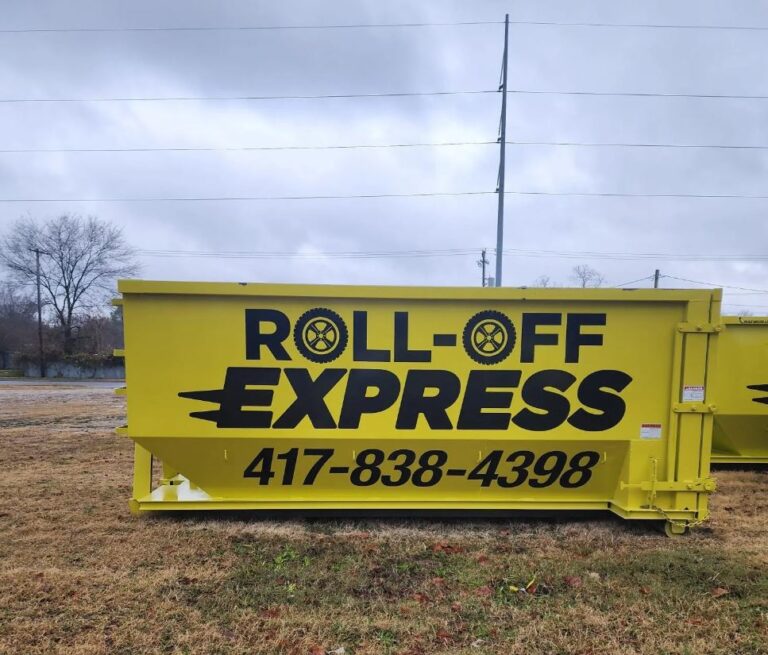

How To Get Rid of Dumpster Smell – Complete Guide For 2024
Tackling dumpster odors is a common issue, particularly in warmer climates where these smells can intensify. Whether it’s your kitchen bin or a larger commercial dumpster, fighting off these persistent odors is crucial. Here’s a straightforward approach to keeping those unpleasant smells under control.
Choose Quality Trash Bags:
The first line of defense against dumpster odors is selecting high-quality trash bags. Choose thicker options to reduce leaks and tears, which are often sources of bad smells.
Maintain Dryness:
Moisture amplifies odors, so it’s important to keep the dumpster dry. On sunny days, open the lid to air it out and let any dampness evaporate.
Prevent Pest Intrusions:
Animals like feral cats, rodents, and insects can exacerbate dumpster issues. Make sure to secure the dumpster’s side doors and lid to stop these pests from adding to the problem.
Regular Can Cleaning:
Consistently cleaning trash cans with soapy water helps control odors. Regularly wash dumpsters and outdoor bins to eliminate bacteria and residue that cause smells.
Use Odor-Neutralizing Solutions:
There are many products and home remedies available for managing dumpster odors. From commercial odor eliminators to natural alternatives, you can find a fitting solution for every scenario.
For additional strategies on pest control in dumpster areas, consider reading ‘How to Prevent Pest Infestation in Outdoor Dumpsters’.
Collaborating with your waste management service is an essential element of effective waste handling. These experts offer more than just garbage collection; they are a crucial resource for guidance on best waste management practices. Here’s how they can be of assistance:
Tailored Waste Management Strategies:
Your waste management provider can suggest specific approaches based on your particular needs. This could range from managing a high volume of organic refuse to special procedures for certain types of waste, or dealing with location-specific challenges.
Scheduled Cleaning Services:
Many waste management companies provide regular cleaning services for dumpsters and bins, which is vital for odor control and maintaining sanitary conditions.
Optimization of Collection Timetables:
They can aid in adjusting your garbage collection schedule to suit the amount and nature of your waste. This helps ensure that dumpsters aren’t overfilled and are emptied on a consistent basis.
Recommendations on Advanced Tools and Methods:
Waste management services often have insights into the latest innovations and products for efficient waste handling and odor reduction, recommending the most effective options available.
Advice on Compliance with Local Standards:
They can guide you in adhering to local waste disposal laws and environmental safety standards, helping you avoid fines and legal complications.
Maintaining a proactive partnership with your waste management service goes beyond scheduled collections; it’s about creating a clean, odor-free, and compliant environment.
For insights on selecting the right dumpster rental service, you might find the article ‘How to Choose a Dumpster Rental Company’ informative.
Maintaining a clean dumpster is essential for odor control and hygiene. Here’s a straightforward guide on how to clean your dumpster effectively:
Optimal Cleaning Time:
It’s best to clean your dumpster soon after it has been emptied. This minimizes the waste to handle, making the cleaning process more efficient.
Clearing Debris:
Start by removing any large debris or residue from the dumpster’s bottom. This ensures a more comprehensive clean.
High-Pressure Rinse:
Using a high-pressure hose, rinse the dumpster’s interior. The high pressure helps in dislodging and washing away stubborn grime.
Applying Cleaning Agent:
Create a natural cleaner with equal parts white vinegar and water in a spray bottle. Spray it inside the dumpster, focusing on heavily soiled areas. For more severe stains and odors, a commercial dumpster cleaning product might be necessary.
Scrubbing:
With a long-handled brush, scrub the dumpster’s inside, especially corners and nooks where debris and bacteria accumulate.
Complete Rinsing:
Rinse the dumpster well to remove all traces of the cleaning solution and debris.
Disinfecting:
Apply a disinfectant, either a commercial product or a bleach-water mix (1 part bleach to 10 parts water), to eliminate germs.
Deodorizing:
Post-cleaning, use a deodorizer like bio-enzymatic odor removers or baking soda to combat odors.
Drying:
Let the dumpster dry in the sun for a few hours. Sunlight acts as a natural disinfectant, aiding in bacteria and odor elimination.
Consistent Cleaning:
Keep up regular cleanings, especially during warm weather when odors can intensify.
Safety Precautions:
Wear gloves and a mask while cleaning and ensure good ventilation to avoid inhaling any fumes from cleaning products.
Adhering to these steps will help you clean and deodorize your dumpster effectively, mitigating bad smells and promoting a cleaner environment.
For additional helpful advice on dumpster cleaning, check out ‘How To Clean A Dumpster’.
Utilizing Cat Litter Properly:
Placing a few cups of kitty litter at the bottom of your trash can or dumpster helps absorb liquids and minimize odors. Choose unscented, clumping cat litter for the best effect. It’s more efficient at trapping smells and easier to clean. Ensure you replace the litter regularly, especially once it becomes wet or soiled.
Neutralizing Odors with Baking Soda:
Scatter baking soda at the bottom of your bin to counteract bad smells. For enhanced effectiveness, combine the baking soda with a few drops of your preferred essential oils before using it. This mix not only neutralizes odors but also imparts a pleasant fragrance. Remember to refresh the baking soda blend weekly to keep its odor-absorbing qualities.
Incorporating Dryer Sheets:
Dryer sheets placed at the base of your trash can or dumpster help cover up unwanted smells with a fresh aroma. Swap out the sheets each time you empty the trash to maintain consistent odor control. If you prefer a greener approach, opt for reusable fabric softener sheets with natural scents like lavender or citrus.
Layer with Absorbent Material:
Use a thick layer of absorbent material like sawdust or commercial absorbents at the bottom of the dumpster. These materials can soak up leaks and spills from garbage bags, reducing odor and simplifying cleanup.
Citrus Peel Effectiveness:
Scatter slices of lemon or other citrus peels throughout the dumpster. Their natural fragrance helps neutralize strong odors, particularly from decomposing food waste.
Harnessing White Vinegar:
White vinegar is a powerful odor neutralizer. Periodically, sprinkle vinegar inside the dumpster or use a vinegar solution to wash its interior. This will help combat persistent smells.
Enclose Odorous Waste:
For especially foul-smelling waste like spoiled food or used diapers, enclose them in sealed bags before disposing of them in the dumpster. This practice helps to contain and isolate the odor.
Regular Dumpster Wash:
Conduct a thorough cleaning of the dumpster regularly, using a mixture of detergent and water, and consider adding vinegar for its deodorizing properties. After washing, rinse well and allow the dumpster to air out, preferably in sunlight, to further reduce odors.
By incorporating these practical and effective methods, you can significantly lessen odors emanating from dumpsters, maintaining a cleaner and more pleasant surrounding area.
When cleaning dumpsters, it’s essential to prioritize your safety. Here are key safety measures to consider:
Wear Protective Gear:
Always use sturdy gloves to protect your hands from germs, sharp objects, and hazardous substances. Safety goggles are also important to protect your eyes from splashes, particularly when using chemical cleaners.
Respiratory Protection:
Employ a mask or respirator, especially when exposed to dust, mold, or strong odors. This is vital to prevent inhaling harmful fumes or airborne bacteria.
Choose Appropriate Clothing:
Dress in clothes that cover your skin, like long-sleeved shirts and long pants, to reduce direct contact with waste. Use old or specific work clothes that can be laundered separately.
Ensure Good Ventilation:
Work in a well-ventilated area. If you’re cleaning within a confined space, such as a dumpster enclosure, open doors or windows to facilitate air flow.
Careful Handling of Chemicals:
Adhere to the manufacturer’s guidelines when using cleaning agents or chemicals. Keep these substances in a secure location and properly dispose of any empty containers.
Clean Up Well:
Post-cleaning, thoroughly wash your hands with soap and water. If you’ve encountered significant dust or debris, consider showering to eliminate any residual particles from your skin and hair.
For more comprehensive information on preparing for dumpster cleaning with the best safety gear and practices, be sure to read the article ‘Top 3 Types of Safety Gear For Cleaning’.
Different seasons bring distinct challenges in controlling dumpster odors:
Summer Heat:
Odors tend to get stronger in the heat. To prevent waste from decomposing quickly and producing strong smells, increase trash pickup frequency during the warmer months. Scheduling pickups in the early morning or late evening can help avoid the day’s peak temperatures.
Winter Challenges:
In cold weather, waste can freeze, making it hard to remove. Make sure the dumpster is not obstructed by snow or ice and regularly clear out any frozen waste to ensure the lid closes properly.
Spring and Autumn Rain:
Rainfall can worsen odors and promote bacterial growth. Always keep the dumpster lid tightly shut to stop water ingress. If feasible, place the dumpster under a cover to protect it from rain.
Adapting to Weather Fluctuations:
Be flexible with your waste management tactics according to the season. Strategies effective in one season may not work as well in another. Stay alert and adjust your methods as necessary to keep odors in check.
By taking into account these safety tips and seasonal considerations, you can more effectively manage your dumpster, maintaining a safer and less odorous environment all year round.
Food Waste:
One of the primary sources of unpleasant odors in dumpsters is food waste. As it decomposes, organic waste generates some of the most potent smells.
Problematic Trash:
Items like diapers, pet waste, and old meat are significant contributors to foul odors. Ensure these items are tightly bagged.
Old Coffee Grounds:
Coffee grounds can initially emit a pleasant scent, but when mixed with other garbage, they can add to the overall bad smell of dumpsters.
Essential Oil Cotton Balls:
Cotton balls soaked in essential oils, such as tea tree or vanilla, can help counteract odors. Place them in a coffee filter, secure with a rubber band, and put it atop the trash.
Coffee Beans:
Coffee beans can serve as a natural odor neutralizer. Place them in open bags within the dumpster to mask odors.
Charcoal:
Charcoal effectively absorbs strong odors. Put a few pieces in a plastic bag and place it at the bottom of your dumpster.
Odor Neutralizers and Air Fresheners:
These products offer a more lasting solution to dumpster smells. You can find various options at local stores.
Bio-Enzymatic Odor Removers:
Specially designed to break down and neutralize odor-causing substances, these removers are effective in controlling dumpster odors.
Granular Odor Control:
Sprinkling these products at the bottom of the dumpster can efficiently tackle unpleasant smells.
Motion-Sensor Lights:
Installing these lights near dumpsters can help keep away pests that exacerbate odor issues.

Roll-Off Express | LETS TALK TRASH | Dumpster Rentals